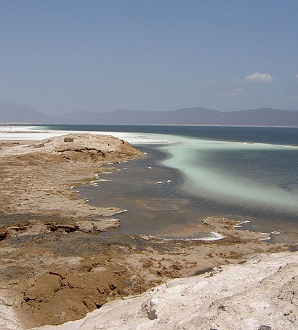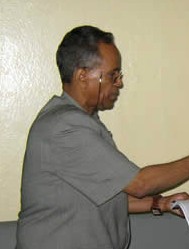|
Djibouti Politics | Economy - Development Djibouti desperate for energy investors
In a US Embassy cable from June 2009, recently published through Wikileaks, the Ambassador notes large investment possibilities for US companies in the small African Horn country. Several Djibouti officials, including Minister of Energy Moussa Bouh Odowa, had called for foreign assistance to invest in electricity production.
In particular, a planned 50-100 MW Djibouti-Iceland geothermal plant at Lac Assal was frustrating government. Not only did Minister Bouh Odowa distrust the Icelandic investors following the financial crisis, he revealed to the US Ambassador, but the Icelanders were also acting in an undiplomatic way, with "errors of protocol and communication." The Djiboutian Minister said he was not as confident that Iceland had the full US$ 25-30 million available to fund the Lac Assal project feasibility phase. The Icelanders had agreed to cover 35 percent of the Djibouti project's exploration costs, which would lead to the largest-ever energy project in the country. Minister Bouh Odowa revealed that he would be very interested in getting further investors than the Icelanders into the project - and other renewable energy projects - to make sure Djibouti could increase its energy production quickly. He would even offer a higher Djiboutian government participation in such investments. Meanwhile, the Icelanders a few months after the US report managed to produce the awaited feasibility report, including the expensive deep wells drilled in the Lac Assal region. The report had a generally positive evaluation of the geothermal power project. But little else has been done to increase Djibouti's energy production since the 2009 report. Djibouti still desperately looks for new investors into its large energy production potential. By staff writer © afrol News - Create an e-mail alert for Djibouti news - Create an e-mail alert for Politics news - Create an e-mail alert for Economy - Development news
On the Afrol News front page now
|
front page
| news
| countries
| archive
| currencies
| news alerts login
| about afrol News
| contact
| advertise
| español
©
afrol News.
Reproducing or buying afrol News' articles.
You can contact us at mail@afrol.com









